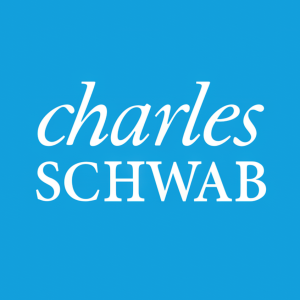Schwab Q3 Trader Sentiment Survey: Recession Expectations Start to Recede as Trader Outlook Brightens in the Third Quarter
More than half think it’s a good time to invest and feel better financially
While most (
The Charles Schwab Trader Sentiment Survey is a quarterly survey that explores the outlooks, expectations, and perspectives of traders at Charles Schwab and TD Ameritrade. It found:
Primary concerns around investing |
|
Likelihood of a recession |
|
Expected length of a recession |
|
Economic data influencing outlook |
|||||||
Potential of a recession |
|
|
Certain |
|
|
6 months or less |
|
|
Inflation |
|
|||
Fed raising interest rates |
|
|
Highly likely |
|
|
6 – 12 months |
|
|
Consumer spending |
|
|||
Political landscape in D.C. |
|
|
Somewhat likely |
|
|
1 – 2 years |
|
|
Labor market |
|
|||
Inflation |
|
|
Somewhat unlikely |
|
|
More than 2 years |
|
|
Consumer debt |
|
|||
Market correction |
|
|
Highly unlikely |
|
|
|
|
|
Housing market |
|
|||
“While traders certainly don’t feel we’re entirely out of the woods yet when it comes to an economic downturn, we’re seeing an influx of cautious optimism,” said James Kostulias, head of Trading Services at Charles Schwab. “This is no doubt thanks to a sunnier economic picture overall this quarter. The jobs market may be cooling somewhat, but it continues to be strong, and unemployment remains remarkably low, especially compared to pandemic-era highs. Even the most recent inflation numbers, while they do indicate a modest rise, are a far cry from the highs we saw in 2022. Concerns may remain, but bullishness is on an upswing.”
Signs of Optimism
Mid-life and older traders are the most bullish (
Overall,
“Retired and younger investors can be particularly sensitive to market swings, so it makes sense that they might feel a little less bullish compared to mid-life and mature investors who have experienced many market cycles over their lifetimes,” said Kostulias. “This experience could lead mid-life and mature traders to feel more comfortable taking calculated risks. This is just one area where the many educational resources and trading tools available at Schwab can make a big difference, and traders are taking advantage of these. Traders say they are now spending more time researching their trades before executing, and our tools can help them to ideate, create, execute, and monitor their trades under multiple conditions and scenarios.”
Sector and asset class outlook
At a sector level, traders are the most bullish on energy (
At the asset class level, many traders are bullish on value stocks (
AI’s impact
Artificial intelligence (AI) is emerging as an important factor in traders’ decision-making, in terms of both the companies they invest in and how they feel the technology will influence the market. Two-thirds of traders (
Factoring company use of AI into stock analysis |
Massive or significant impact of technologies over next 1 – 3 years |
|
||
Yes |
|
Artificial intelligence |
|
|
No |
|
Quantum computing |
|
|
Not sure/don’t know |
|
Blockchain |
|
|
|
|
Virtual/augmented reality |
|
|
|
|
The Metaverse |
|
|
About the Charles Schwab Trader Sentiment Survey
The Charles Schwab Trader Sentiment Survey is a quarterly study exploring the outlooks, expectations, trading patterns and points of view of active traders at Charles Schwab and TD Ameritrade – defined as those making more than 80 equity trades, more than 12 options trades, or those who make futures or forex trades over the course of the year. The study included 768 Active Trader clients at Charles Schwab and TD Ameritrade between the ages of 18-75 and was fielded from July 6 – August 3, 2023.
About Charles Schwab
At Charles Schwab, we believe in the power of investing to help individuals create a better tomorrow. We have a history of challenging the status quo in our industry, innovating in ways that benefit investors and the advisors and employers who serve them, and championing our clients’ goals with passion and integrity.
More information is available at aboutschwab.com. Follow us on Twitter, Facebook, YouTube, and LinkedIn.
Disclosures
Investing involves risk including loss of principal.
(0823-3PTD)
View source version on businesswire.com: https://www.businesswire.com/news/home/20230823544589/en/
Margaret Farrell
Charles Schwab
(203) 434-2240
Margaret.farrell@schwab.com
Source: The Charles Schwab Corporation







